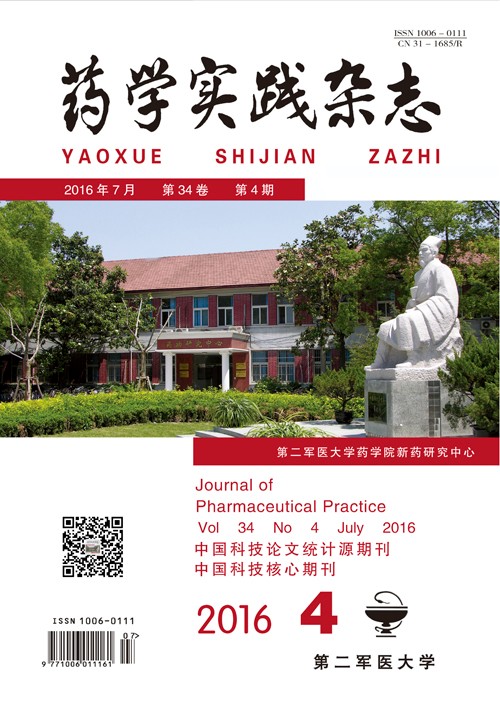|
[1]
|
陈勇. 口服单药希罗达与FOLFOX方案治疗晚期结直肠癌的疗效比较[J]. 中国药业,2012,21(11):90-91. |
|
[2]
|
Thara E, Dorff TB, Pinski JK, et al. Vaccine therapy with sipuleucel-T (provenge) for prostate cancer[J]. Maturitas,2011,69(4):296-303. |
|
[3]
|
Fox BA, Schendel DJ, Butterfield LH, et al. Defining the critical hurdles in cancer immunotherapy[J]. J Transl Med,2011,9:214. |
|
[4]
|
Bol KF, Tel J, de Vries IJM, et al. Naturally circulating dendritic cells to vaccinate cancer patients[J]. Oncoimmunology,2013,2(3):e23431. |
|
[5]
|
Tel J, Smits EL, Anguille S, et al. Human plasmacytoid dendritic cells are equipped with antigen-presenting and tumoricidal capacities[J]. Blood,2012,120(19):3936-3944. |
|
[6]
|
Wang X, Yu W, Li H, et al. Can the dual-functional capability of CIK cells be used to improve antitumor effects?[J]. Cell Immunol,2014,287(1):18-22. |
|
[7]
|
Frankenberger B, Schendel DJ. Third generation dendritic cell vaccines for tumor immunotherapy[J]. Eur J Cell Biol,2012,91(1):53-58. |
|
[8]
|
Mesiano G, Todorovic M, Gammaitoni L, et al. Cytokine-induced killer (CIK) cells as feasible and effective adoptive immunotherapy for the treatment of solid tumors[J]. Expert Opin Biol Ther,2012,12(6):673-684. |
|
[9]
|
Jakel CE, Hauser S, Rogenhofer S, et al. Clinical studies applying cytokine-induced killer cells for the treatment of renal cell carcinoma[J]. Clin Dev Immunol,2012,2012:473245. |
|
[10]
|
Mesiano G, Todorovic M, Gammaitoni L, et al. Cytokine-induced killer (CIK) cells as feasible and effective adoptive immunotherapy for the treatment of solid tumors[J]. Expert Opin Biol Ther,2012,12(6):673-684. |
|
[11]
|
Shi S, Wang R, Chen Y, et al. Combining antiangiogenic therapy with adoptive cell immunotherapy exerts better antitumor effects in non-small cell lung cancer models[J]. PLoS One,2013,8(6):e65757. |
|
[12]
|
Hasumi K, Aoki Y, Wantanabe R, et al. Clinical response of advanced cancer patients to cellular immunotherapy and intensity-modulated radiation therapy[J]. Oncoimmunology,2013,2(10):e26381. |
|
[13]
|
Hontscha C, Borck Y, Zhou H, et al. Clinical trials on CIK cells:first report of the international registry on CIK cells (IRCC)[J]. J Cancer Res Clin Oncol,2011,137(2):305-310. |
|
[14]
|
Thanendrarajan S, Nowak M, Abken H, et al. Combining cytokine-induced killer cells with vaccination in cancer immunotherapy:more than one plus one?[J]. Leuk Res,2011,35(9):1136-1142. |
|
[15]
|
Schlom J. Recent advances in therapeutic cancer vaccines[J]. Cancer Biother Radiopharm,2012,27(1):2-5. |
|
[16]
|
Marten A, Renoth S, von Lilienfeld-Toal M, et al. Enhanced lytic activity of cytokine-induced killer cells against multiple myeloma cells after co-culture with idiotype-pulsed dendritic cells[J]. Haematologica,2001,86(10):1029-1037. |
|
[17]
|
Xiang B, Snook AE, Magee MS, et al. Colorectal cancer immunotherapy[J]. Discov Med,2013,15(84):301-308. |
|
[18]
|
Toomey PG, Vohra NA, Ghansah T, et al. Immunotherapy for gastrointestinal malignancies[J]. Cancer Control,2013,20(1):32-42. |
|
[19]
|
Cui Y, Yang X, Zhu W, et al. Immune response, clinical outcome and safety of dendritic cell vaccine in combination with cytokine-induced killer cell therapy in cancer patients[J]. Oncol Lett,2013,6(2):537-541. |
|
[20]
|
Mesiano G, Todorovic M, Gammaitoni L, et al. Cytokine-induced killer (CIK) cells as feasible and effective adoptive immunotherapy for the treatment of solid tumors[J]. Expert Opin Biol Ther,2012,12(6):673-684. |
|
[21]
|
Duru N, Fan M, Candas D, et al. HER2-associated radioresistance of breast cancer stem cells isolated from HER2-negative breast cancer cells[J]. Clin Cancer Res,2012,18(24):6634-6647. |
|
[22]
|
Beutler N, Hauka S, Niepel A, et al. A natural tapasin isoform lacking exon 3 modifies peptide loading complex function[J]. Eur J Immunol,2013,43(6):1459-1469. |







 DownLoad:
DownLoad: